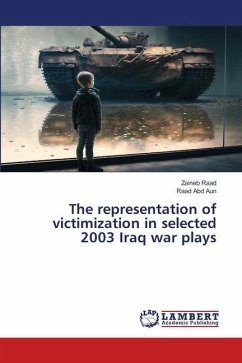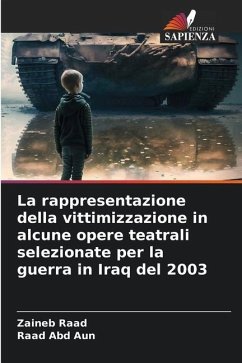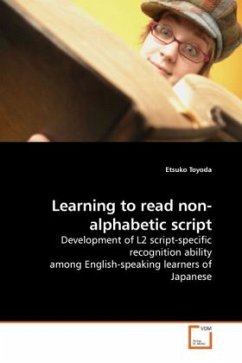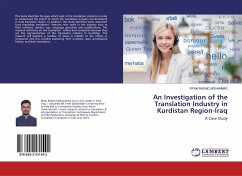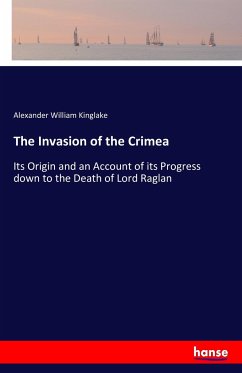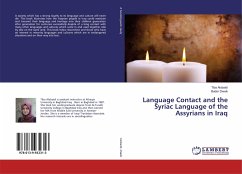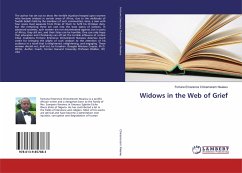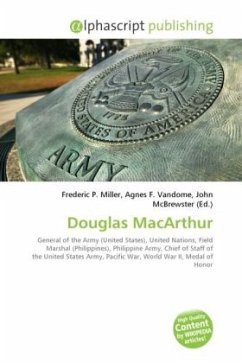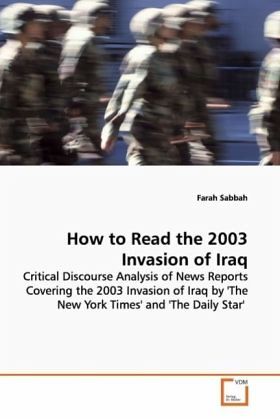
How to Read the 2003 Invasion of Iraq
Critical Discourse Analysis of News Reports Covering the 2003 Invasion of Iraq by 'The New York Times' and 'The Daily Star'
Versandkostenfrei!
Versandfertig in 6-10 Tagen
39,99 €
inkl. MwSt.

PAYBACK Punkte
20 °P sammeln!
The language of the news has been found to have a persuasive and powerful role in reproducing discourse of a certain party. This study aims to illustrate that the the two opposing parties, The United States and Iraq, viewed the war from different perspectives, thus producing different discourses. A corpus of 90 news reports taken from two English language newspapers, 'The New York Times', published in the United States of America and 'The Daily Star', published in Lebanon, are analyzed using Halliday s transitivity model and Lakoff s conceptual metaphors. The transitivity model shows that each...
The language of the news has been found to have a
persuasive and powerful role in reproducing
discourse of a certain party. This study aims to
illustrate that the the two opposing
parties, The United States and Iraq, viewed the war
from different perspectives, thus producing
different discourses. A corpus of 90 news reports
taken from two English language newspapers, 'The New
York Times', published in the United States of
America and 'The Daily Star', published in Lebanon,
are analyzed using Halliday s transitivity model and
Lakoff s conceptual metaphors. The transitivity
model shows that each class of verbs creates
meanings and leads to implications on the part of
the reader in addition to insinuating a relationship
between news reporting and power. The results of the
conceptual metaphors show how each party justified
its course of action through the construction of
its own version of the 'fairy tale' of the war.
This study concludes that though the two newspapers
are reporting the same events, there are often two
different discourses that emerge in the reports
about the war which may in turn affect its readers
differently.
persuasive and powerful role in reproducing
discourse of a certain party. This study aims to
illustrate that the the two opposing
parties, The United States and Iraq, viewed the war
from different perspectives, thus producing
different discourses. A corpus of 90 news reports
taken from two English language newspapers, 'The New
York Times', published in the United States of
America and 'The Daily Star', published in Lebanon,
are analyzed using Halliday s transitivity model and
Lakoff s conceptual metaphors. The transitivity
model shows that each class of verbs creates
meanings and leads to implications on the part of
the reader in addition to insinuating a relationship
between news reporting and power. The results of the
conceptual metaphors show how each party justified
its course of action through the construction of
its own version of the 'fairy tale' of the war.
This study concludes that though the two newspapers
are reporting the same events, there are often two
different discourses that emerge in the reports
about the war which may in turn affect its readers
differently.



